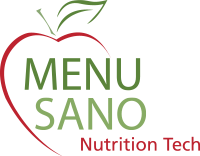In today’s diverse marketplace, imitation products have become increasingly prevalent. From plant-based alternatives that replicate traditional dairy to meatless burgers that closely mimic the taste of real meat, imitation products provide a wide array of options for consumers.
However, as these products continue to gain popularity, questions surrounding their labeling and compliance with FDA regulations have surfaced. This blog will explore imitation products, their nutritional differences, FDA regulations for labeling, tips to avoid misbranding, and the importance of clear labeling practices.
Defining Imitation Products and Their Nutritional Differences
Often referred to as “meat substitutes,” “plant-based alternatives,” or “imitation dairy,” are foods designed to resemble and imitate the sensory characteristics of traditional animal-based or dairy-based products. While these products aim to replicate their counterparts’ taste, texture, and appearance, they often differ significantly in nutritional composition. Acknowledging these distinctions is essential to provide consumers with transparent and accurate information.
Read more: Co-Manufacture vs. Self-Manufacture: The choice for Food
FDA Regulations for Labeling Imitation Products
To ensure transparency and protect consumers, the U.S. Food and Drug Administration (FDA) has established clear regulations for labeling imitation products:
- Nomenclature: The FDA mandates that the product names should not be misleading. They must include the term “imitation” and use words that indicate the nature of the product. For example, “Imitation Cheese” or “Plant-Based Meat Alternative.”
- Nutritional Labeling: It must provide accurate and comprehensive nutritional information, including differences in essential nutrients compared to traditional products. Consumers have the right to know what they are consuming.
- Ingredient List: A detailed ingredient list is essential to disclose the components used in the imitation product. This allows consumers to make informed choices based on their dietary preferences or restrictions.
- Allergen Information: Clear allergen labeling is crucial to protect individuals with allergies or sensitivities. Imitation products should highlight the presence of common allergens in the ingredient list.
Read more: Are Sweet Potatoes Healthy?

Tips for Labeling Imitation Products to Avoid Misbranding
To label these products effectively and avoid misbranding, consider the following information:
- Accurate Nutritional Analysis: Conduct a thorough nutritional analysis to understand the differences between your imitation product and the traditional counterpart. Highlight these distinctions in the nutritional label.
- Transparent Ingredient List: Provide an ingredient list that reflects the components used in the imitation product. Ensure it is easy for consumers to identify what they are consuming.
- Allergen Disclosure: Clearly label allergenic ingredients and any potential cross-contact with allergens. This protects consumers with food allergies.
- Honest Nomenclature: Use names that accurately describe the nature of the product. Avoid misleading terms that may confuse consumers.
Read more: How to Read A Nutrition Label
Building Consumer Trust Through Clear Labeling Practices
Clear labeling practices are not only about compliance but also about building trust with consumers. When imitation products provide accurate information, consumers can make informed choices aligned with their dietary preferences, allergies, or ethical beliefs. This transparency fosters trust and loyalty.
Let’s take a look at some statistics below:
- Prevalence of Imitation Products: The global plant-based meat market is projected to reach $85 billion by 2030, highlighting the rapid growth of imitation products (Source: Statista).
- Consumer Preference for Transparency: 94% of consumers are more likely to be loyal to a brand that offers complete transparency (Source: Label Insight).
- Impact of Misleading Names: A study found that consumers were more likely to choose an imitation product if it had a name that resembled a traditional product, emphasizing the importance of accurate nomenclature (Source: Appetite Journal).
- Allergen Concerns: In the United States, approximately 32 million people have food allergies, underscoring the significance of allergen disclosure (Source: Food Allergy Research & Education).
Read more: Healthier Menus make Healthier Communities
Conclusion
Accurate labeling and compliance are non-negotiable in the complex landscape of imitation products. The Food and Drug Administration’s stringent regulations set the standards for transparent and honest representation, and any misstep can result in severe consequences.
To navigate this terrain successfully and build consumer trust, consider MenuSano as your ally. MenuSano offers a comprehensive platform designed to simplify the task of nutrition analysis and compliance. While MenuSano doesn’t exclusively center on imitation products, its powerful features, such as accurate labeling and nutritional analysis, can be highly valuable in helping you meet regulatory standards and keep consumers confident in your products.
In a market where transparency and trust are paramount, MenuSano empowers you to uphold clear labeling practices, avoid misbranding, and provide consumers with accurate product information.
Take a significant step towards compliance and consumer satisfaction today. Start a free trial and explore all that MenuSano has to offer. Your commitment to precise labeling can be the key to success in the evolving landscape of imitation products.






















